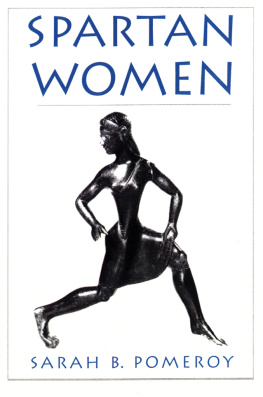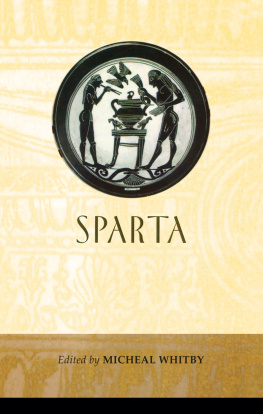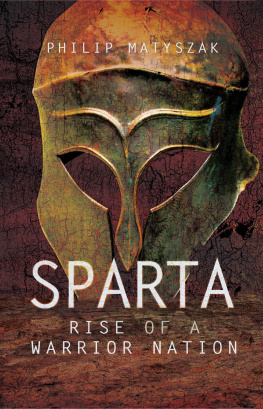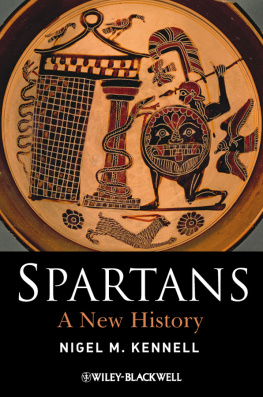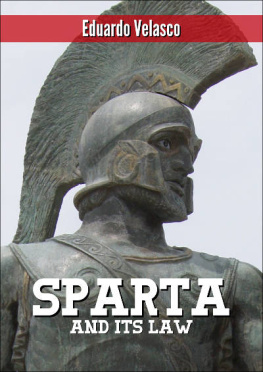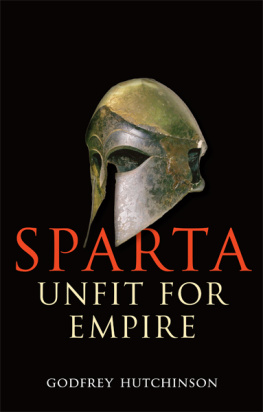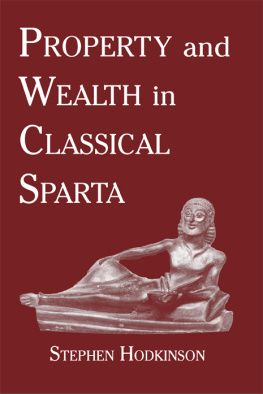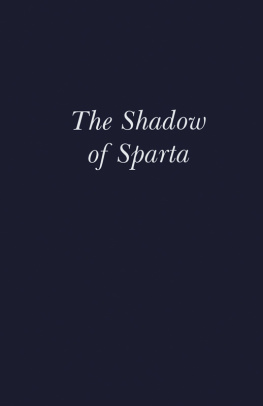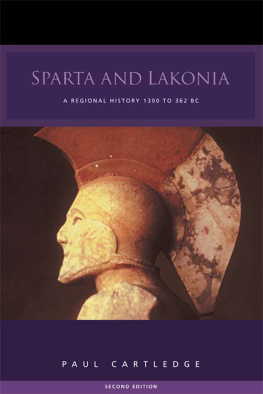Routledge Revivals
Classical Sparta
This collection, first published in 1989, investigates aspects of the Spartan polity which have often been overlooked or underestimated. Viewed at least until the Renaissance as the epitome of classical virtues, Sparta has in the last two centuries suffered a rapid decline in reputation among liberal-minded scholars, repelled by many of the repressive measures employed by this remarkably successful city-state, which for centuries dominated mainland Greece.
Recent studies have emphasised permanent problems which beset Sparta: the small size of her citizen body, the tensions between noble Spartiates and commoners, the ambiguous role of women, and, of course, the helots. Classical Sparta: Techniques Behind Her Success seeks to present this intriguing polis by exploring how its perennial difficulties were, for so long, ingeniously overcome. Specifically, the essays in this volume address themselves to broadly ideological issues, demonstrating how skilful propaganda and deception contributed significantly to the longevity of the Spartan state.
Classical Sparta
Techniques Behind Her Success
Edited by
Anton Powell
First published in 1989
by Routledge
This edition first published in 2014 by Routledge
2 Park Square, Milton Park, Abingdon, Oxon, OX14 4RN
and by Routledge
711 Third Avenue, New York, NY 10017
Routledge is an imprint of the Taylor & Francis Group, an informa business
1989 Anton Powell
The right of the editor Anton Powell to be identified as author of this work has been asserted by him in accordance with sections 77 and 78 of the Copyright, Designs and Patents Act 1988.
All rights reserved. No part of this book may be reprinted or reproduced or utilised in any form or by any electronic, mechanical, or other means, now known or hereafter invented, including photocopying and recording, or in any information storage or retrieval system, without permission in writing from the publishers.
Publishers Note
The publisher has gone to great lengths to ensure the quality of this reprint but points out that some imperfections in the original copies may be apparent.
Disclaimer
The publisher has made every effort to trace copyright holders and welcomes correspondence from those they have been unable to contact.
A Library of Congress record exists under LC control number: 88020748
ISBN 13: 978-0-415-74333-4 (hbk)
ISBN 13: 978-1-315-81370-7 (ebk)
CLASSICAL
SPARTA:
TECHNIQUES BEHIND
HER SUCCESS
Edited by Anton Powell
With a Foreword by
Paul Cartledge
First published 1989
by Routledge
11 New Fetter Lane, London EC4P 4EE
1989 Anton Powell
Printed in Great Britain by
Billing & Sons Ltd, Worcester
All rights reserved. No part of this book may be reprinted or reproduced or utilized in any form or by any electronic, mechanical, or other means, now known or hereafter invented, including photocopying and recording, or in any information storage or retrieval system, without permission in writing from the publishers.
British Library Cataloguing in Publication Data
Classical Sparta, techniques behind her success.
1. Sparta (Ancient city)
I. Powell, Anton
938'.9 DF261.S8
ISBN 0-415-00339-3
Contents
| Paul Cartledge |
| Ephraim David |
| N. R. E. Fisher |
| Alan Griffiths |
Inheritance, Marriage and Demography: Perspectives
upon the Success and Decline of Classical Sparta |
| Stephen Hodkinson |
| J. T. Hooker |
| Robert Parker |
| Anton Powell |
Lakonian studies were effectively refounded by Geoffrey de Ste. Croix, whose Origins of the Peloponnesian War not only stated unforgettably Sparta's problem with the helots but also set an example in the deriving of fresh and convincing interpretations of classical literary texts. Since the appearance of his book, important progress has been made by others (among them several contributors to this volume) in exploring permanent problems within Sparta's own citizen body. Arising from these developments, the argument which engendered the present volume was briefly this: since Sparta's enduring difficulties were great, and yet her success (considering her size) was extraordinary, unusual and effective procedures among the Spartans are worth looking for.
All the papers now torming this book have been presented orally to a seminar of the revived London Classical Society. When counsels were initially divided on the suitability of the seminar format for the Society, it was intervention by James Hooker and Norma Miller which secured the seminar's future. To them the organiser of the seminar, the editor of this volume, acknowledges a great debt.
The Society is indebted also to the University of London's Institute of Classical Studies. The Institute has housed most of our meetings; its secretariat has provided our most important publicity; its library and other facilities provide an indispensable focus. We remember with especial gratitude the vision and energy of the late Victor Ehrenberg, who helped to create not only the London Classical Society but also the Institute itself.
Finally, the editor records his debt to Ephraim David and David Harvey, for the learning and the goodwill which they brought to discussion of papers at the seminar; and to Paul Cartledge, whose direct contribution to this book has gone far beyond the writing of the Foreword.
A. Powell
Paul Cartledge
The subject of Sparta is surprisingly apt to provoke powerful passions within the professionally dispassionate academic sodality. 'Narrow-minded jealousy' and 'utter inhumanity' were the collective Spartan characteristics that obtruded on one recent historian's sombre vision, whereas another could almost simultaneously observe that Sparta 'with all its obvious faults' was yet 'a mystery and an inspiration to generations of intelligent men'. and the terrifying abstention from artistic cultivation of the beautiful habitually practised by, or at any rate ascribed to, its ancient inhabitants.
Perhaps the only truly satisfying way of resolving these and other seeming paradoxes of the ancient Spartan experience is to work them through in a novel or play.
The question rather is one of approach and framework. In the long run ancient Sparta failed, both as a power-unit and as a social system. Yet, however comforting that may be to a fatalist in the mould of Herodotus (I.5.3-4), Sparta's run was a very long one indeed, and even after the collapse of the fourth century BC the state possessed a remarkable capacity for regeneration as late as the second century AD. Moreover, the idea of Sparta or rather a multiple legacy of often very disparate ideas has outlived antiquity to be a formative influence still in many societies to this day.
Spartan success can usefully be located on two broadly distinguishable planes: the ideological and the institutional. Straddling these two, and partaking both of propaganda and myth (in the broadest sense) but little or nothing on Spartan religion as a system of ideas and practices or its location within Spartan society as a whole. And this is in spite of the telling evidence provided by observant non-Spartans who knew Sparta and Spartans well at first hand: for instance, the understated remark of Herodotus (V.63.2) that the Spartans 'rank the things of heaven more highly than the things of men', or Xenophon's comment on the daily pre-dawn sacrifice conducted by the commanding king on a campaign that, 'could you witness it, you would consider all other people to be mere improvisers in military matters and the Spartans the only real technicians of warfare' ( Lak. Pol. XIII.5). Parker's essay (pp. 142-72), which gives multum in parvo , thus fills a real gap. By isolating and emphasising what he takes to be the distinctive features of Spartan ritual life and identifying the role of religion in Spartan public affairs generally, he is able to show how the gods were, as he puts it (in suitably military language), 'at the top of the chain of command that ran down through Spartan society'.



